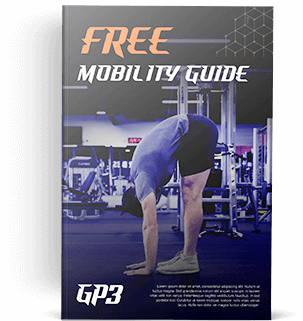Key Points:
- Guilt and shame share some similarities but have key differences with regards to autonomy and identity.
- Guilt has genuine utility for children, less for adults.
- Shame often tells the story, “I’m a bad person,” which is a thought pattern that couldn’t be more wrong, and ultimately hurts both the victim and perpetrator of a harmful action.
Estimated reading time: 5-10 minutes
Listen to this article on Spotify!
“Guilt is stupid. It’s a useless emotion.” A friend of mine made this assertion during a recent conversation, and it led to some interesting discussions. So, I decided to see if I could turn our observations into a 1,500 word blog post. Here goes nothing!
When Guilt is Useful
First, I do believe guilt has utility and an evolutionary purpose, particularly for children. Let’s say a five year old sees another child in the sandbox playing with a toy he wants. So, he pushes the other kid over, takes the toy, and starts playing with it. However, the other child immediately starts crying and the hero/villain of our story finds himself filled with an icky, hot, nausea-inducing sensation. It’s quite uncomfortable, and he doesn’t like it one bit.
That’s what I would consider a healthy form of guilt, in that it teaches us that causing harm to others feels bad. It incentivizes us to avoid doing so in the future. This guilt response also had implications during our species’ heyday as hunter-gatherers, because some well-placed ickiness could prevent behaviors that might lead to expulsion from the tribe and subsequently, death.
So, what purpose does guilt serve as an adult?
While children need to learn the lessons about harming others, and probably be reminded with some regularity until the lessons sink in, things are a bit different for adults. Inevitably, through carelessness, selfishness, or misunderstandings, we’ll harm others whether we meant to or not. In these cases, we’re best served by empathizing and learning from our actions, asking ourselves if we could or should have done anything differently, and taking that knowledge into future situations. We don’t need to beat ourselves up about our actions.
And that’s the key point, here.
Guilt and Shame
A 2018 study from Miceli and Castelfranchi beautifully highlights the differences between these two emotions.
“Shame implies perceived lack of power to meet the standards of one’s ideal self, whereas guilt implies perceived power and willingness to be harmful, that is, to violate the standards of one’s moral self.
These differences have important motivational consequences, both positive and negative: whereas guilt is likely to motivate either reparative or self-punitive behavior, shame is likely to motivate either withdrawal or increased efforts in building one’s aspired-to identity.”
There’s quite a bit to unpack, here! First, I want to focus on the power aspect. Guilt comes with an assumption of autonomy, while shame is accompanied by a lack of it, both of which influence our actions.
The authors of the study indicated that behaviors motivated by guilt were likely to be “reparative or self-punitive.” The latter bit is likely what my friend was referring to when he called guilt “useless.” And from that standpoint, I agree.
In my opinion, self-punitive behavior is indeed, pointless. As tempting as it may be to engage in, behavior of that nature does nothing to fix the situation. At worst, it can be used as a means to avoid sitting with and learning from the discomfort that arose from realizing our actions harmed someone. In situations when reparative actions are impossible, self-punitive behaviors may be even more enticing, but they’re still taking the easy way out.
Instead of trying to “get rid” of the discomfort, we need to feel it without casting judgment on ourselves.
And that self-judgment is where shame comes in.
Maybe my favorite buzzword, identity, jumped out at you in the above quote from the study. The authors wrote that shame can lead to “increased efforts in building one’s aspired-to identity.” If you’ve read my previous pieces on identity, (or seen me reference them in seemingly every other post) you’ll know I don’t think working to reinforce any identity is a particularly good idea.
Inevitably, identities believed to be inextricably linked to one’s sense of self lead to suffering. And not only for ourselves, but for others, too. When an identity we hold dear is threatened, we’re more likely to act from a level of fear or anger that would be more understandable if our lives were actually in danger.
So, especially from this standpoint, I think we could do without shame. It often pushes the harmful narrative, “I’m a bad person,” or, “I’m not good enough.” Well, I’m calling BS on that. Thoughts like those can be summarily dismissed. Why?
Well, in cases where our actions hurt someone else, these thoughts shift the focus away from the person we wronged and back onto ourselves. It’s kind of like the example cited in the book, Freakonomics, where a daycare business imposed a small fine on parents who picked up their children more than 15 minutes after the center closed. Late pickups promptly skyrocketed. The fine inadvertently became a way for parents to offset any guilt they felt and justify the exact behaviors the daycare center was hoping to minimize.
As I mentioned previously, in an instance where we caused avoidable harm, empathy and learning from our mistakes will likely serve all parties best. Self-punitive behaviors or a faulty thought pattern that tries to develop a new identity as “the bad one” actively discourage healing. In short, we can’t make amends or learn from the situation if we’re fully absorbed with ourselves.
But, why do so many of us tend towards shame and self-punitive behaviors?
I believe this identity-creating mechanism arises as an attempt to make sense of our actions. Most of us grow rather attached to the notion of free will, so we like to have an understanding of why we do the things we do. When we do something incompatible with one of our identities, particularly the view, “I’m a good person,” we yearn for an explanation.
So, the thought that says, “I’m actually bad” arises automatically, like a reflex. We may also find it rather seductive.
Conditioning plays a huge role in this, as well, often in the form of religion. With particular apologies to my Catholic readers, certain religious institutions instill the idea that we’re inherently bad or flawed, and born that way. I can’t understate how damaging that viewpoint is.
When we carry around a secret worry that we’re actually a “bad person,” or “not good enough,” while simultaneously being terrified that other people know this or might find out, everyone loses. We’ll subconsciously take self-sabotaging actions, driven to uphold this identity of inadequacy. Often, we don’t even realize we’re doing it, so we’ll ask ourselves questions like, “What’s wrong with me?” or, “Why am I like this?”
And I mean, seriously…eff all that.
So much energy wasted and too much suffering on behalf of a false belief about an identity construct that isn’t remotely real. Enough already!
Okay, but what can we actually do, instead?
I won’t pretend to have this all figured out, or claim a sort of magical formula to prevent mental anguish. All I feel comfortable doing is sharing some observations I’ve made, and hoping you’ll give them a try to see if they’re equally effective for you.
So, what have I learned?
- Thoughts are just reflexes.
Remember that they arise in response to situations and don’t say anything about you.
- When intrusive thought patterns arise, treat your brain as you would a petulant toddler throwing a temper tantrum.
“There goes that brain of mine, acting up again.”
- When an uncomfortable emotion like guilt or shame is present, don’t try to get rid of it.
Just sit there and be with it. Feel the associated bodily sensations. The ironic part is, by not actively trying to get rid of the discomfort, it’ll pass much more quickly.
- Remember “sometimes” as your secret exit door from any identity trap.
When a thought pops into your head and says, “I’m a bad person,” you can mentally respond with, “Sometimes, some of my actions could be seen by some people as good, and by some people as bad.” Not much use getting fired up over a “nothing burger” of a sentence like that, is there?
So, at the end of the day, is guilt useless? Not really, but shame probably is. They both also have less utility for adults than children. But since they’re not going away, we just need to know what to do with them. Luckily, it can be quite simple. Feel them and learn from them…but don’t believe their stories.
Before you go, I’d love to hear from you. Have you struggled with guilt or shame in the past? In what ways? Have you believed the thought stories that tried to tell you that you’re somehow not good enough? Isn’t it a relief to

